
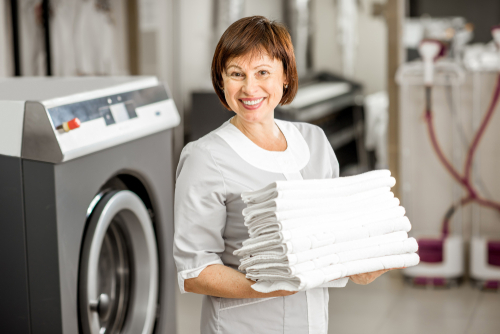 Many things go into ensuring profitability for your commercial venture, and a significant responsibility of any business owner is keeping costs down without sacrificing safety or productivity. At Superior Propane, we appreciate that energy costs can affect your bottom line considerably.
Many things go into ensuring profitability for your commercial venture, and a significant responsibility of any business owner is keeping costs down without sacrificing safety or productivity. At Superior Propane, we appreciate that energy costs can affect your bottom line considerably.
Business owners in Williams, Flagstaff, Sedona, Prescott and surrounding areas are always looking for dependable energy that’s safe and cost-effective. They often ask us if propane or electric equipment is best for their workplaces. Let’s compare commercial propane and electric systems.
If you want to supply heated air to individual spaces in your commercial property, you might be choosing between a propane furnace or a heat pump system. Both systems have zoned heating capabilities with individual self-contained units, but the propane system is generally more efficient and effective. Commercial propane furnaces have heating capacities from 44,000 up to more than 1 million Btu/hour. They boast fuel efficiency levels as high as 98.5%. Heat pump systems struggle to produce that level of comfort that efficiently.
And propane has a carbon intensity score (how much carbon dioxide is generated to produce a given amount of energy) that’s more than 40% lower than Arizona grid electricity, which relies heavily on coal and natural gas for generation.
When comparing traditional storage tank water heaters, you’ll find that new, properly-sized propane units can typically heat twice as much water per hour than comparable electric units. Commercial propane water heaters have capacities of 100 gallons or more, plus the ability to heat water to 180 degrees Fahrenheit!
Tankless propane water heaters offer even better efficiency. The U.S. Department of Energy says they can be up to 34% more efficient than storage-tank products. Tankless water heaters are smart investments with a lifespan often exceeding two decades.
Over 90% of professional chefs prefer gas cooktops, ranges and ovens over electric alternatives — and with good reason. These products offer instant, powerful heat that you can adjust to exactly the right temperature. Propane-powered fryers, griddles, steam cookers and other commercial kitchen products can save you money with Energy Star-rated efficiency.
Propane-powered commercial clothes dryers can have burner capacities ranging from 18,000 to over 550,000 Btu/hour. They generally boast much shorter drying times than equivalent electric units. Many commercial propane dryers also have perforated drums to create more balanced airflow and air recirculation to save you money on energy use.
So many worksites, manufacturers, distribution centers and other commercial projects depend on a reliable indoor and outdoor forklift fleet. Propane forklifts offer functionality and adaptability you won’t find with electric forklifts.
While both propane and electric forklifts can work indoors safely, electric models can become damaged in rainy outdoor conditions. Propane vehicles keep rolling in the rain without problems. Electric forklifts also tend to lose power as their battery is depleted. There’s no “fade” with propane, though. Your forklift keeps going at 100% capacity until the last drop of fuel.
And while you might lose hours waiting for an electric forklift to recharge, all you need to do is exchange an empty propane forklift cylinder for a full one, and you’ll be back to work right away.
Whatever commercial propane systems or equipment your business uses, the Superior Propane team has the skills, experience and dedication to keep it running. We offer commercial-grade propane tanks, a customized bulk propane delivery schedule and plenty of other fueling solutions.
Reach out to us today to discuss your commercial propane needs. We’re ready to create your tailor-made fuel plan.
 It’s hard to believe that the year is nearing its end. We’re saying goodbye to pumpkin-spiced coffee and hello to peppermint. Holiday season shopping is revving up in a big way, and the nights are getting chillier. We’re looking at freezing temperatures overnight in northern Arizona, with propane-fired furnaces and space heaters clicking on in homes across our region.
It’s hard to believe that the year is nearing its end. We’re saying goodbye to pumpkin-spiced coffee and hello to peppermint. Holiday season shopping is revving up in a big way, and the nights are getting chillier. We’re looking at freezing temperatures overnight in northern Arizona, with propane-fired furnaces and space heaters clicking on in homes across our region.
The Superior Propane team is always available to answer your questions about propane, the products that use it and the tanks that store it. Here are some important things to remember regarding your home’s propane tank.
Technically, propane can freeze — but we can pretty much assure you that it won’t freeze in your home’s tank.
Propane has a freezing point of -306.4°F. For reference, the coldest temperature ever recorded in Arizona was in January 1971, which was -40°F (hotter than propane’s boiling point). In short, if liquid propane is freezing in your tank, we’re facing much bigger problems, weather-wise.
While you don’t need to worry about frozen propane in your tank, you still should be aware of the negative issues that cold temperatures present. Propane contracts when it’s cold. When it’s extremely cold outside, your propane will take up less space inside your tank. This contraction can create a loss of tank pressure. If tank pressure becomes too low, you might face problems with the fuel reaching the burners of your furnace, water heater and other appliances. That’s bad news on a freezing night in the Grand Canyon State.
The most important thing you can do to ensure proper pressure in your propane tank is to keep it filled to at least 30%. If your tank gauge is at or below 30%, contact Superior Propane right away for a propane delivery before winter arrives in full force. You can avoid calling us altogether by signing up for our free “Keep Full” automatic propane delivery plan. We’ll track your fuel usage and deliver propane before you run low. Automatic delivery can put an end to low tank pressure — and unexpected runouts.
You can take other steps to reduce the likelihood of tank pressure issues in the winter. Don’t let snow build up on your propane tank. When you clear it away, sunlight can reach your tank and keep it warmer. It would help if you also considered turning down your thermostat at night, whenever possible. Your furnace will cycle less often, using less fuel and saving you money in the process!
In Williams, Flagstaff, Sedona, Prescott and nearby communities, Superior Propane proudly offers top-notch fuel delivery at fair, transparent prices. We pride ourselves on offering propane tank options tailored to your home’s specific needs. This includes our “Hassle-Free” switch with 24-hour setup and switch-out, FREE propane tank leasing for a year, an introductory fuel discount, safety checks and gas line installation. When you lease a Superior Propane tank, we handle the maintenance and repairs for you!
We want to serve your northern Arizona home this winter and for years to come. Become a Superior Propane customer.
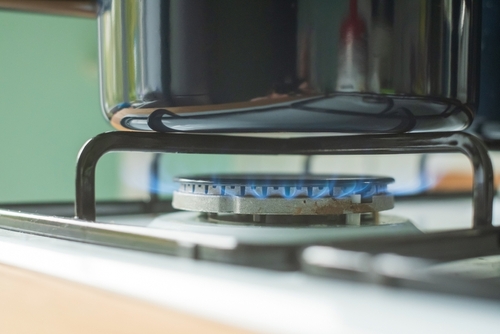 It’s been a confusing year for people deciding which stove to add to their homes. In Prescott, Flagstaff, Williams, Sedona and other northern Arizona communities, the Superior Propane team has talked to many homeowners worried their high-quality propane ranges will be “banned.”
It’s been a confusing year for people deciding which stove to add to their homes. In Prescott, Flagstaff, Williams, Sedona and other northern Arizona communities, the Superior Propane team has talked to many homeowners worried their high-quality propane ranges will be “banned.”
Some misleading stories about gas stoves and indoor air quality have caused these rumors about confiscating appliances. These rumors are false. Early in 2023, the Consumer Product Safety Commission (CPSC) asked for public input on hazards associated with gas stoves, but there’s no plan for government officials to ban them.
We understand why all this chatter has worried people about potential health risks with propane stoves. So, let’s dig into the issue and set the record straight.
In December 2022, the International Journal of Environmental Research and Public Health published a study that concluded that “12.7% of current childhood asthma nationwide is attributed to gas stove use.”
This study and others highlighted emissions of methane, particulate matter and various oxides.
Are “gas stoves” the same as propane stoves? That’s a pertinent question. A stove powered by natural gas works much differently from one fueled by propane. Here’s how propane stoves fare with the indoor emissions in question.
One significant concern of these studies is methane, which can leak from natural gas stoves. Methane is a potent greenhouse gas and the main component of natural gas. But propane contains no methane. If you cook with propane, you don’t need to worry about these emissions.
The Environmental Protection Agency (EPA) describes particulate matter as microscopic solids or liquid droplets that can be inhaled and cause serious health problems. All cooking — whether with gas, electricity or any other energy source — generates particulate matter.
Indoor air quality experts advise always using your kitchen range hood to vent particulate matter to the outside whenever you are cooking.
As stated before, studies involving “gas stoves” and air quality typically use natural gas as their subjects. This includes an oft-cited Stanford study finding “health-damaging air pollutants such as nitrogen oxides,” which “can trigger respiratory diseases.” It also includes a 2016 study at Lawrence Berkeley National Lab, which found that boiling water on a natural gas stove produces nearly twice the amount of nitrogen dioxide as the EPA indoor standard. Considering that about one-third of homes in the U.S. cook with natural gas, that needs to be addressed.
Overall, the best solution for improving your kitchen’s air is ensuring good ventilation around your stove, either with a hood or by keeping windows open. In a New York Times article, Dr. Ravi Kalhan of Northwestern University suggests that an air purifier with a HEPA filter can help.
Despite many of the scare tactics employed by gas stove opponents, propane kitchen appliances are still the gold standard for home chefs. They work efficiently, generating quick heat and providing optimal temperature control. They also tend to be safer than electric options. Propane ranges cool quickly after you turn off the flame, while electric elements stay dangerously hot well after you’re done cooking. A 2020 National Fire Protection Association study found that electric ranges cause household fires at a rate 2.6 times greater than gas ranges.
Interested in adding a propane stove or another propane appliance? Reach out to Superior Propane to get started!
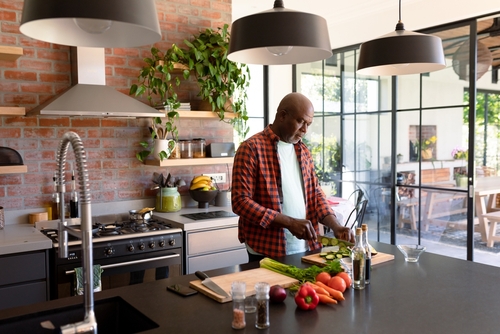 In Flagstaff, Prescott and other northern Arizona cities and towns, people always ask us if they should go with propane or electric appliances. Certainly, both electricity and the propane we deliver can power a wide range of appliances, but propane is generally the way to go for efficiency, reliability and carbon reduction.
In Flagstaff, Prescott and other northern Arizona cities and towns, people always ask us if they should go with propane or electric appliances. Certainly, both electricity and the propane we deliver can power a wide range of appliances, but propane is generally the way to go for efficiency, reliability and carbon reduction.
Electric equipment — whether we’re talking about a furnace, water heater, clothes dryer, etc. — is only as clean as the electricity powering it. Unfortunately, Arizona’s power grid is far from green. It relies on natural gas and coal for over half its generation. As such, the Arizona power grid’s carbon intensity score is nearly 70 percent higher than propane’s.
You also need to consider how much more efficient propane-powered equipment is compared to electric products.
Today’s propane furnaces are exceptionally efficient, with many achieving Annual Fuel Utilization Efficiency (AFUE) ratings as high as 98 percent. These furnaces can consistently deliver heated air in the 120–140 degrees Fahrenheit range, regardless of how cold it is outside. By comparison, electric heat pumps tend to top out below the human body temperature (98.6 degrees) and struggle to maintain comfortable indoor temperatures in sustained freezing weather — when you need them most.
Propane is the gold standard for efficient hot water generation. Traditional storage tank water heaters powered by propane have recovery rates twice as fast as electric models. That means your system spends less time and energy to generate hot water. And propane-powered tankless water heaters can generate virtually unlimited hot water on demand, using less fuel overall!
An overwhelming majority of professional chefs prefer cooking with gas over electricity. Gas-fired ranges and ovens offer faster heat generation and precise temperature control. Perhaps you have heard that gas stoves are bad for indoor air quality. This claim has been debated in recent months, largely because some studies that link cooking with gas to respiratory issues.
The reality is more complicated than some people argue. Consider these facts:
You can experience even more efficiency and comfort with propane appliances. Propane dryers can get laundry dry much faster than electric appliances, and they leave fewer wrinkles. Propane can illuminate your home with magnificent fire features, including gas logs and outdoor fire pits. And propane generators offer dependable standby power when the grid goes down.
The experts at Superior Propane can help you get the most from this efficient, clean-burning fuel. Reach out to us for more information on propane equipment and appliances.
Sources: https://www.chooseenergy.com/data-center/electricity-sources-by-state/ and https://propane.com/about-propane/renewable-propane/
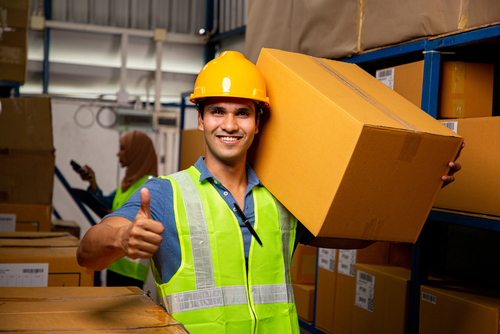 It’s not exactly news to say that gasoline and diesel prices have been on a roller-coaster in recent years. Unfortunately, the pricing ride has been more up than down.
It’s not exactly news to say that gasoline and diesel prices have been on a roller-coaster in recent years. Unfortunately, the pricing ride has been more up than down.
Refinery production dropped because of lower fuel demand in the early months of COVID-19, but when demand spiked later, the supply of gas and diesel couldn’t keep up. Similarly, we saw almost all U.S. energy prices surge in 2022 when Russia invaded Ukraine, and Russian oil supplies were cut off from the U.S.
Propane, as a predominately American-made fuel, is more insulated from global energy markets (though not completely immune to bumps in energy prices). You can typically count on propane prices to be more stable and lower than gas or diesel.
This makes propane autogas more appealing to commercial enterprises and municipalities in Flagstaff, Sedona, Prescott, Willimas and elsewhere in northern Arizona. And Superior propane can help you get started.
Propane autogas is an alternative to gasoline, diesel or electricity for powering light-, medium- and heavy-duty vehicles. The propane is in a pressurized tank like the one used in a home. Then, pressure is relieved to allow the fuel to enter the autogas engine for combustion. According to the Alternative Fuels Data Center, about 60,000 autogas vehicles are on U.S. roads right now.
As mentioned, propane autogas costs less per gallon than gasoline or diesel. While propane generates slightly less energy per gallon than gasoline, this price differential still makes autogas a great financial choice.
Propane-powered engines also traditionally have lower maintenance costs and a longer service life because of less carbon and oil contamination.
Then, there are the environmental benefits of autogas. Autogas produces 20% less carbon monoxide, 40% fewer nitrogen oxides and 10% less carbon dioxide than diesel or gasoline. This is better for the planet and the air quality around these vehicles.
From a safety perspective, autogas also outpaces gasoline or diesel, which can spill and contaminate soil and groundwater. By contrast, propane is nontoxic and will evaporate in the rare event of a leak.
As you can imagine, more and more sectors are choosing propane autogas as a safer, cleaner and more affordable vehicle-fuel option. These sectors include:
There are also public and municipal uses for autogas, including city and school buses, public works vehicles and police cruisers.
Do you need another reason to switch to propane autogas? How about saying goodbye to gas and diesel pumps?
Superior Propane can set you up with on-site propane autogas storage and vehicle-filling equipment, then arrange a bulk propane delivery schedule so you are never without fuel. That means your drivers won’t need to line up at a service station, and you can stop reconciling receipts all the time.
Contact the Superior Propane team to learn more about autogas service.
 When was the last time you looked at your propane tank’s gauge? Countless Superior Propane customers in Flagstaff, Williams, Sedona, Prescott and other northern Arizona towns use our automatic propane delivery option and don’t look at their gauges for months.
When was the last time you looked at your propane tank’s gauge? Countless Superior Propane customers in Flagstaff, Williams, Sedona, Prescott and other northern Arizona towns use our automatic propane delivery option and don’t look at their gauges for months.
Some are surprised to find that, after their propane delivery, their tank is not 100 percent full. You don’t need to worry. We aren’t shortchanging you on fuel. Your tank gauge might be lower (or higher) than you’d expect for several reasons.
Propane, like water, expands and contracts as outdoor temperatures rise and fall. However, propane’s volume (the amount of space it takes up) will grow 17 times more than water’s with the same temperature increase.
Considering how significantly propane’s volume shifts, you can see that the amount of space it occupies is contingent on weather conditions.
The gauge on your home’s propane tank does not measure the number of gallons in your tank. It measures the percentage of the tank that contains fuel. There’s a float that rests on top of your propane. The higher this float rests, the higher the percentage reading on your gauge.
But as we’ve already established, the temperature outside affects propane’s volume. So, if we fill your 250-gallon propane tank with 200 gallons of fuel in moderate weather (say, 60°F), the gauge would read 80 percent. But if there is a sudden temperature drop in the evening, the tank’s fill percentage will drop slightly as the fuel’s volume contracts. There would still be 200 gallons of propane in your tank, but they take up less space.
This brings us to why we (and all other propane companies) never fill an aboveground propane tank more than 80 percent. Leaving 20 percent of your propane tank empty creates a space allowance for the fuel expansion that can happen during periods of extreme heat. Responsible fuel companies follow this standard safety process to ensure your tank doesn’t experience dangerously high pressure.
And remember, we only charge you for the propane we put into your tank. You don’t need to worry about paying for a higher fill than you’re receiving.
If you’re still contacting us whenever you need a propane delivery, it’s important not to let your fuel levels drop to 20 percent. Doing so, especially in colder weather, increases the likelihood of an unexpected runout. We recommend calling us for a delivery when your gauge hits 30 percent instead.
Even better, you can sign up for our FREE “Keep Full” automatic delivery service. With this option, Superior Propane’s state-of-the-art system will track your fuel usage, and we’ll refill your tank before you run low. Plus, we’ll give you a discount on your propane just for enrolling!
If you want to enroll in automatic delivery, contact the Superior Propane office today.
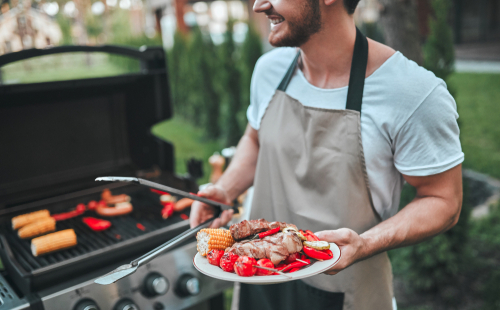 Grilling with propane is, above all, convenient. Want to sear some filet mignons for a special occasion? Just turn a knob to light your burners. Did you finish grilling some spicy chicken wings? All you need to do is turn off the grill, close your propane cylinder and get ready to eat.
Grilling with propane is, above all, convenient. Want to sear some filet mignons for a special occasion? Just turn a knob to light your burners. Did you finish grilling some spicy chicken wings? All you need to do is turn off the grill, close your propane cylinder and get ready to eat.
Propane grills are easy to use and quite safe, but it’s important to be aware of potential issues. One of these is hissing sounds. How should you respond when your grill is hissing, and it’s not from a sizzling burger?
The first thing you need to do if your grill starts hissing is shut off your burners. Whatever the cause of this hissing, there is a possibility that propane gas is escaping. Propane is non-toxic, but it is highly flammable. It’s imperative that you extinguish any flames.
A standard reason for hissing is pressure being released from your propane cylinder. All propane tanks, including portable grill tanks, must have pressure relief devices. This valve protects your propane tank from rupturing when excess pressure builds up.
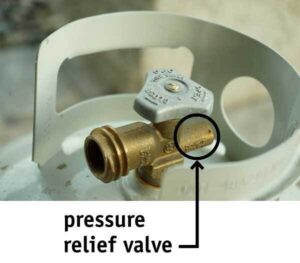
A propane cylinder’s safety relief valve stays closed with a spring. If tank pressure mounts to an unsafe level, it pushes on the spring, and the safety valve opens. You’ll hear a pop if that occurs, then there will be a hissing sound as pressure lowers. Do not attempt to close this safety valve. It will close on its own when cylinder pressure is normal and safe. You can help the process by cooling the cylinder with a hose.
If the pressure relief isn’t open, you may have a leak. There is a fairly simple way to test this.
Once you’ve turned off your grill, close the propane cylinder and follow these steps:
If there is a gas leak around your grill, either your cylinder or some part of your grill needs to be replaced.
Do you need propane for your gas grill? Superior Propane is the premier grill fuel provider in northern Arizona. Drop by one of our convenient cylinder refill stations in Flagstaff, Williams, Seligman, Parks and Ash Park. Refilling a propane tank is almost always more affordable than exchanging your cylinder at a home store, gas station or hardware store.
If you have any questions about home propane or using your propane grill effectively, feel free to contact the Superior Propane team.
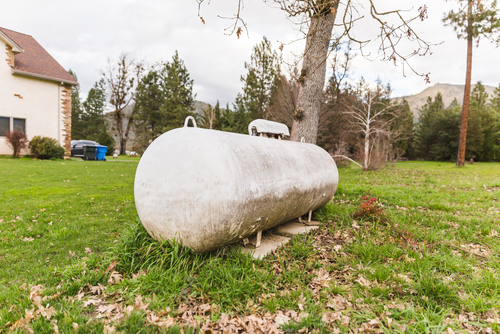 How long has your current propane tank been on your property? Perhaps you continued propane service from the prior homeowner when you purchased your home. Or maybe you own your tank outright. In Flagstaff, Sedona, Prescott and other towns that we service, customers sometimes worry that their propane tank is on its last legs.
How long has your current propane tank been on your property? Perhaps you continued propane service from the prior homeowner when you purchased your home. Or maybe you own your tank outright. In Flagstaff, Sedona, Prescott and other towns that we service, customers sometimes worry that their propane tank is on its last legs.
With over 25 years of experience serving northern Arizona households, Superior Propane can easily replace your tank with minimal disruption to your daily life.
Aboveground propane tanks — which power home heating and major appliances — have long lifespans, typically over 30 years. Underground tanks have slightly shorter life expectancies, closer to 20-30 years.
Whatever type of stationary tank you have, you can expect it to be there for the long haul.
No home equipment lasts forever, and there will come a time when you’ll need to replace your propane tank. Here are some indicators that your propane tank is nearing retirement.
A failing propane tank is a significant issue. It can lead to a gas leak that poses a serious safety risk. Don’t delay contacting us if you notice any of these warning signs. A Superior Propane team member will inspect your tank and advise if it needs service or a total replacement.
If you need to replace your home propane tank, you won’t find a more diligent, safety-focused partner in northern Arizona than Superior Propane.
We sell and install propane tanks in a range of sizes. Our team can identify the perfect model to accommodate all your gas-powered systems and appliances. From there, we offer a “Hassle-Free Switch” to customers. What’s included in this process?
You’ll be amazed at how quickly our team can get your home safely connected for propane service.
If you think your propane tank is ready to be replaced, get in contact with our team today.
 If you manage a restaurant or a commercial kitchen in a hotel, resort or other business, you know that energy comprises a significant chunk of your overhead. Choosing a fuel that balances energy savings with effectiveness and versatility is crucial.
If you manage a restaurant or a commercial kitchen in a hotel, resort or other business, you know that energy comprises a significant chunk of your overhead. Choosing a fuel that balances energy savings with effectiveness and versatility is crucial.
One survey recently found that 96 percent of professional chefs prefer cooking with gas. At Superior Propane, we deliver efficient, clean-burning propane to countless businesses that feed Arizonans. Here are some of propane’s uses in commercial kitchens.
Why is cooking with propane so appealing to professional chefs? There are countless reasons. Propane’s carbon intensity is far lower than grid-based electricity, and unlike natural gas, it’s methane-free!
As a predominantly U.S.-made fuel, propane’s price has tended to be more stable than other energy sources. And gas-cooking is generally more appealing than electric. Here are a few reasons why:
Just step into any restaurant with an “open kitchen” floorplan, and you’ll see gas-fired products in just about every corner.
Lines of chefs work from propane cooktops and ranges. Roasting and baking happen in propane-fired ovens. Propane also powers grills, griddles, steam cookers, warming stations and vat fryers. All these products offer incredible cost-saving potential. The Propane Education & Research Council (PERC) broke down the numbers and found that propane-fired cooking products, more often than not, offered superior energy savings compared to electric alternatives.
When it comes to generating hot water, propane is as good as it gets. Propane water heaters have double the recovery rate (the number of gallons of hot water it can produce in one hour) of electric models. With much less energy, you can generate enough hot water to run your commercial-grade dishwashers; sanitize your pots, pans, knives and food-prep surfaces; and get your tablecloths and napkins gleaming white.
The restaurants, hotels, clubs and resorts we serve use propane for more than their commercial kitchens. It’s also an essential fuel for systems and appliances that make customers comfortable and relaxed. This includes the furnaces and patio heaters that warm patrons on chilly winter evenings. It also includes stunning décor like gas logs, firepits, fire tables and outdoor fireplaces!
When northern Arizona hospitality businesses need dependable propane delivery for their commercial kitchens, they invariably contact us. Our commercial propane team will work closely with your business to right-size your propane storage and arrange a fuel delivery schedule tailored to your needs.
Superior Propane is ready to get to work for your business. Reach out today to get started fueling your propane-powered kitchen.
 If you, like us, are concerned about heating your home and powering your appliances cleanly and efficiently, then you may reasonably wonder if propane is environmentally responsible. After all, there’s so much talk about converting households to all-electric appliances. Is full electrification the only green option?
If you, like us, are concerned about heating your home and powering your appliances cleanly and efficiently, then you may reasonably wonder if propane is environmentally responsible. After all, there’s so much talk about converting households to all-electric appliances. Is full electrification the only green option?
Absolutely not — propane is a considerably eco-friendly fuel. In many ways, it’s a greener home energy option than converting to fully electric systems.
Propane has many attributes that substantially benefit the planet (and your wallet too). Consider these facts:
As you can see, conventional propane is an incredibly eco-friendly energy source. And renewable propane is even greener.
Renewable propane is molecularly identical to conventional propane, so that you can use it in propane equipment without modification. But it’s produced using organic and recycled feedstocks like those used in biodiesel. These feedstocks include:
Because of this sustainable production process, renewable propane has a CI that’s roughly half that of conventional propane — and sometimes even lower. Indeed, renewable propane is carbon neutral at the point of combustion!
Renewable propane isn’t in widespread use today, but its production grows substantially each year. In 2021, the U.S. produced roughly 4.6 million gallons of renewable propane, according to the Environmental Protection Agency.
At Superior Propane, we encourage our customers in Flagstaff, Prescott, Williams and other northern Arizona towns to invest in energy efficiency. Today’s high-efficiency propane furnaces will substantially lower both your carbon footprint and your winter fuel usage.
Similarly, according to the Department of Energy, a propane tankless water heater like the Rinnai products we install is up to 34 percent more efficient than a storage tank unit. That’s because tankless systems only heat water when you need it instead of heating a reheating a full tank of unused water.
Superior Propane can save you money on equipment upgrades with rebates and discounts. Reach out to us anytime to explore your options.